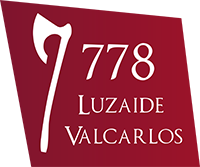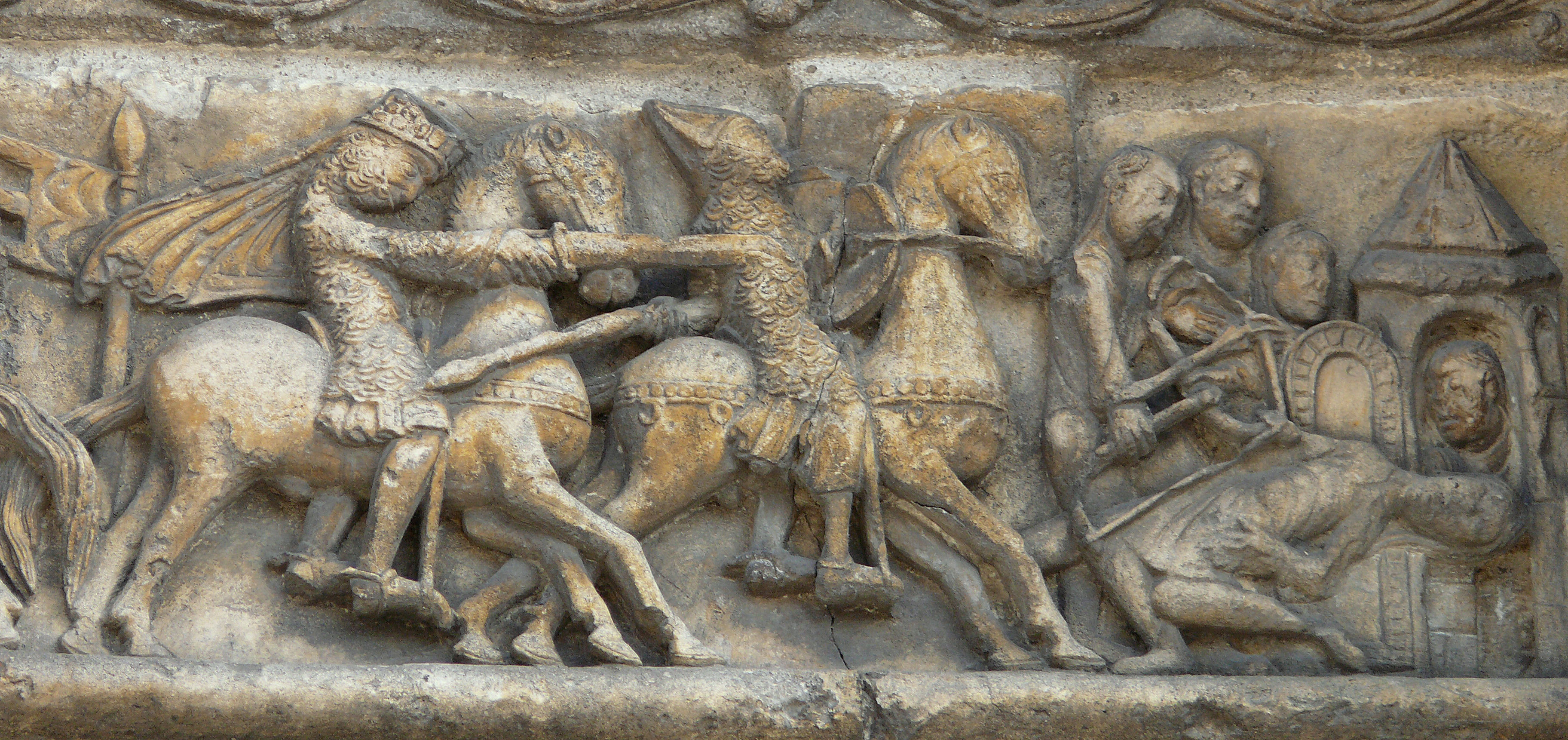La Chanson de Roland is an epic poem with several hundred verses, about the Battle of Roncesvalles. It was written at the end of the 11th century (three centuries after the fact) and its authorship is attributed to a Norman monk called Turoldus. It is one of the oldest poems of heroic deeds written in a Romance language in Europe, which gives some idea of the impact of the battle, as it was one of the few defeats suffered by Charlemagne. It is one of the masterpieces of French literature and it has been reproduced hundreds of times.
In La Chanson, the Vascones are replaced by Muslims and it describes the battle as an ambush on the rearguard of the Carolingian army during the Crusade against Islam undertaken by Charlemagne at the behest of Archangel Gabriel, to recover the remains of the prophet James.
The Song of Roncesvalles is an epic poem written in Medieval Spanish, with features of the Navarro-Aragonese Romance language, possibly composed between 1225 and 1250. All that remains is a two-page passage, with a hundred verses, in the General Archive of Navarra. Nevertheless, we know that the subject matter is similar to that of La Chanson.
According to the research by Ramón Menéndez Pidal, it may have had 5,500 verses, and the passage does not follow the same poetic tradition as La Chanson de Roland, as it contains elements that are not present in the French poem. However, no doubt the same legends that inspired La Chanson had a part to play.
FROM HISTORY TO LEGEND
The Battle of Roncesvalles had a huge impact on European society that still continues today. There were songs about the event and an epic literary tradition was born. The most famous character was possibly Roland, Charlemagne’s nephew, who was exalted by literary sources until he became a legendary figure.
The impact still reverberates now in this part of the Pyrenees. There are many beliefs and places that popular tradition identifies with the mark left by Roland and his horse Veillantif or his sword Durandal. Names that were since given to many places.










